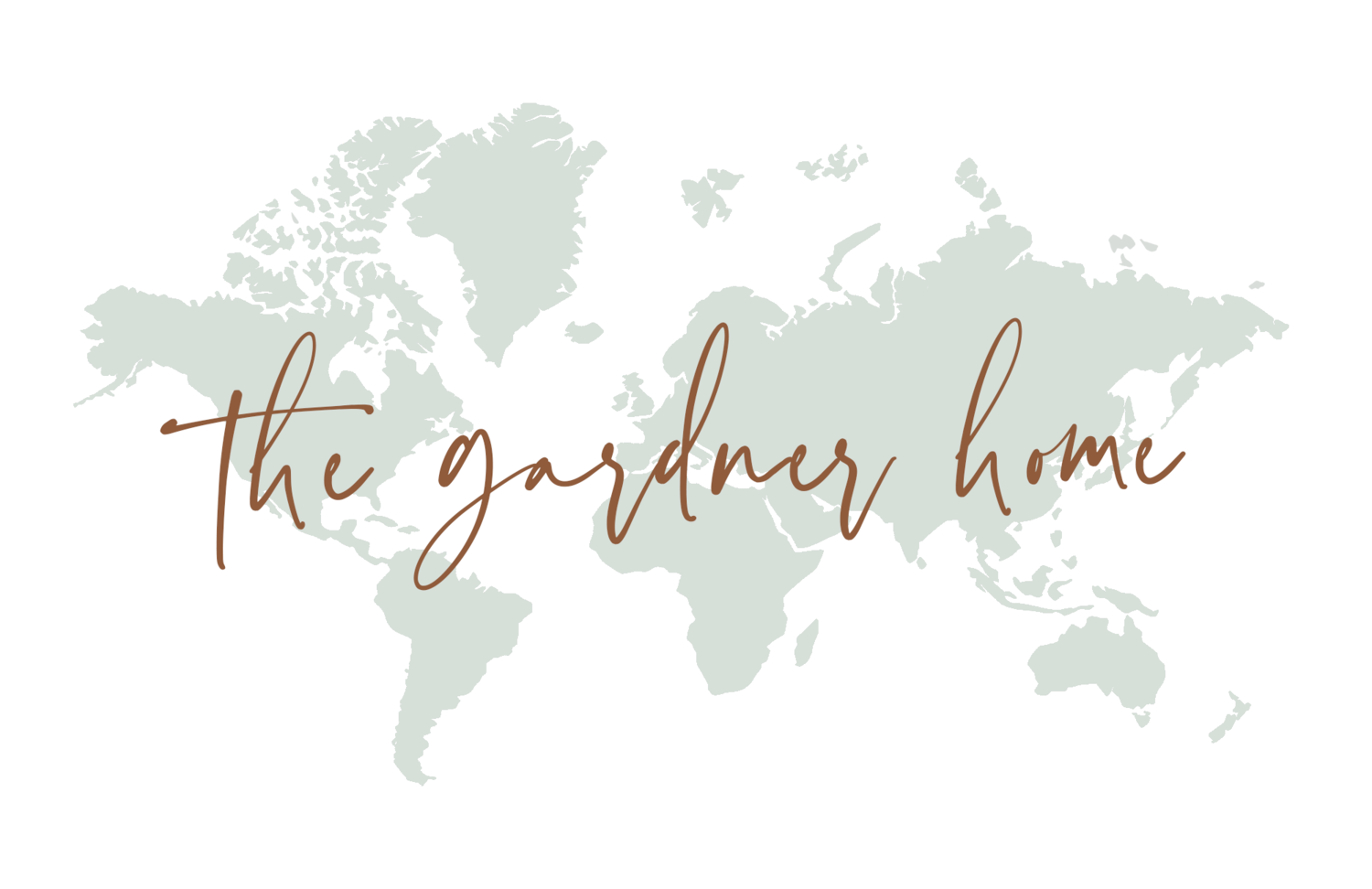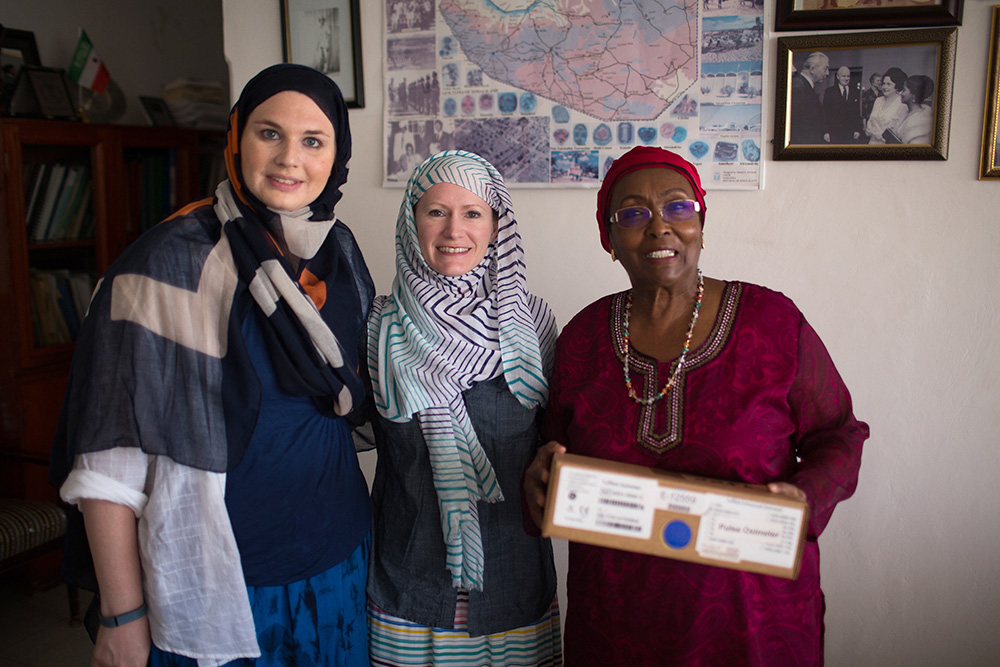The apartment building across the street
We are often asked what does daily life look like while living in Africa. To be honest, I'm not sure there is a "normal" day, but I figured I'd try my best to explain one. Now that we have a baby (who turns 3 months on December 23rd) in the picture, our days have drastically changed. So I offer this timeline as an inspiration to those trying to work from home with little ones, and for any mommas out there who might be exclusively pumping. It's a long story as to why I'm exclusively pumping, but the short version is 2 hours of breastfeeding and wasn't full, tongue tie, and one week in NICU eating from a bottle. Like I said, short version. Anyways, here's what a typical day might look like:
somewhere between 4am-6am - Ezra wakes up for his early morning feeding. (sometimes this has happened as late as 8am) At this time, Reed gets up and warms the bottles and changes him, while I get ready to pump. Ezra usually eats around 6 oz at this time. Somewhere between 40 min. to an hour later we all go back to sleep.
Ezra enjoying his time in the Mamaro
8am - Ezra wakes up and Reed feeds him another 3 oz bottle and I pump again. Afterwards we change him out of his pj's and we put him in the mamaroo while we get dressed and eat breakfast.
9am - Our house helper arrives and begins cleaning the kitchen. :) We transition to the office so she can clean the bedrooms. All three of us go into our office to work. This is when we answer emails, work on reports, and other office tasks for our NGO. Ezra usually plays in the mamaroo and sometimes nods off for a few cat naps. On days we adventurous we'll spend the morning at the cafe down the street. We try to at least go once a week. They have a great cheap breakfast and we have already made several friends with some of the regulars.
11:30am - Ezra takes another 2-3 oz bottle and goes down for a nap somewhere between 30 min - 1 hr.
12pm - We eat lunch, usually prepared by our house helper.
12:30 pm - If he's not already awake, Ezra wakes up and wants to play. We usually do tummy time and on a good day he'll even roll over for us!
1:00 pm - I pump again, and we take advantage of the local custom, which is to rest! All the shops shut down till about 3:00 or 4:00 so we can't do any errands. We usually put on a tv show while I pump and Reed continues playing with Ezra.
2:00 pm - Once a week we'll take this time to go to the grocery store or get drinking water. Recently the grocery stores have decided to stay open during the pause "break" and it's the perfect time to beat the crowds. Ezra will catnap if we are out and about, if not, then he wants to play!
Just one of our many stops on our evening walks around the neighboorhood.
3:00 - 4:30 pm - Ezra takes another bottle sometimes two, which is around 3-5 oz. He finally takes another nap and so do we!
5:00 pm - Exercise time! Since the only air conditioned gym is $300 a month and our floor in our apartment is so slippery I have yet to successfully complete a workout video, we have to get creative on how we get our exercise in. Right now (in the winter) the weather is perfect for walking and jogging outside, so we load up Ezra in the stroller, cover him with a mosquito net and explore our neighborhood. Ezra loves bumping along and usually sleeps the whole time. We finish our walk with some lunges, planks, wall sits, etc.
6:00 pm - Since we only have cold showers we make sure to shower while we are still sweaty, but since cooking dinner also involves sweating Reed will go ahead and begin cooking, while I shower and then pump.
7:00 pm - We start getting Ezra ready for bedtime. We give him a bath, change him into his pj's and if it's Saturday or Sunday we call our families on FaceTime before Ezra falls asleep. One of us will also continue finish cooking dinner, while the other feeds and put Ezra down for the night.
8:00 pm - Ezra is usually asleep by now, so we finally eat dinner while watching a movie or tv show. After dinner we may do a few more emails or office work, since we can finally work without interruption!
10:00 pm - I pump again while doing my daily French lesson on my iPhone. Afterwards we clean all the bottles, and we fall asleep by 11:30. (as a side note, cleaning bottles in Africa is a chore in itself.) While the water here is actually clean enough to drink it's very salty and has a lot of sulphur. So everything it touches seems to weaken by the day. Things turn brown quicker, and just seem to fall apart. That being said, we have to wash the bottles with our drinking water. Praise to my momma who bought us a water tower when she was here this month! Because that baby has saved us countless steps! With the water tower the water comes out blazing hot! So now I just pour some in a bucket and start washing. The soap here is also horrible. It's just water-downed goop, but I have a special reserve of Dawn that a family got at the store on the American base and I only use that soap for cleaning all the bottles and pump parts.
So this is our schedule most days except Tuesdays, Fridays, and Sundays. On Tuesdays we have team meetings, so our entire mornings are spent hosting our team in our living room as we take time to debrief the last week. Fridays are equivalent to the western Saturday and Sundays—it's the day of rest. So our house helper has the day off and so do we. On Sundays, we spend the morning going to chapel on the American base and then eating out at a local restaurant.
Gathering stories and photos at a recent distribution to disabled children.
Our schedule will also change once we begin French classes again. Starting in January we will either take classes at the local school or look for tutors. We aren't quite sure how this will work into our baby schedule, but we guess that one of us will do French while the other is on baby duty, and vice versa. So for now it's a small glimpse into our life. We expect things to change as Ezra gets older and has a more solid routine of sleeping and eating, and once I know longer have to pump 6 times a day! We also have jobs that pop up on a moment's notice that we have to be a part of as well. Since my job is documenting any humanitarian distributions, I also have my camera charged in case I get a call that a distribution is happening today and I need to go and get stories.
As I think about our daily routine I realize how different it is from our routine in the States. Life seemed simpler as you went to work from 9-5, often time later, had set days of rest, but never rested outside those days. Always had plenty of notice before big events, and most importantly had family to help out with babysitting. But even though our new life is different, it's a blessing. We get to be stay-at-home parents and work full-time. It's an interesting mix that provides a lot of challenges, but we wouldn't trade it for anything.
I also realized that it took all day to write this blog post because of stopping to pump, eat, change diapers, holding Ezra while typing with one hand, etc. It seems that whatever time it took for a task to get done before it takes double the amount of time when you have a baby, and it also takes even more time living in Africa. My mom finally understood that statement during her time staying with us. The heat makes things go slower; it makes us go slower! So in an effort to feel like we get at least something done each day we've started telling each other what we would like to accomplish each day. My list usually consists of two things: work out and do 30 minutes of French. Sometimes I get ambitious and add "send out newsletter," or "write blog." We've found that this has helped us stay focused on just a few things at a time and hopefully those few things will add up over the long run. So while we may not feel like we get as much done in a day as we use to, we go to bed tired, and we at least get something done every day, and for that I count it as a win.













